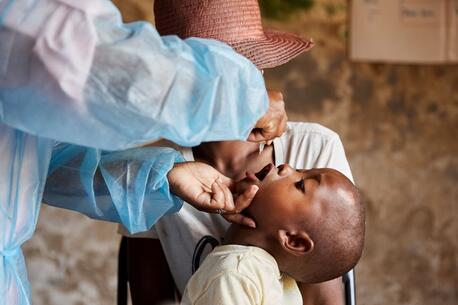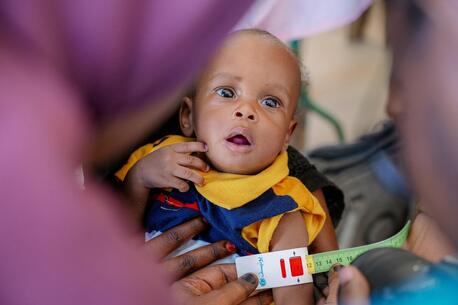
Born Into War
Yemen was already one of the Arab world's poorest countries before brutal fighting erupted in March 2015. Children born in the last 1,000 days face huge challenges in their physical, cognitive and social development. Pregnant women in Yemen, many already sick or malnourished themselves, often have to give birth in deplorable conditions. Babies are being born premature and sick. Many are too medically fragile to survive the first days and weeks of life.
Half the country's health centers are closed. The hospitals that remain open are severely overcrowded. In neonatal wards, two or three babies share an incubator meant for a single infant. UNICEF is supporting Yemen's healthcare workers with badly needed supplies and operational costs.
Yemen has suffered decades of under development, economic decline, frequent bursts of conflict and the destruction of fragile public infrastructure and services. The deadlocked civil war has driven 2 million people from their homes and left 1.25 million public sector workers without pay for a year.
Military blockades have created acute shortages of food, fuel and medicine. Families desperate to feed and protect their children are turning to child marriage. Sixteen million people are struggling to survive without safe drinking water. There have been over 1 million suspected cases of cholera and acute watery diarrhea.
Almost the country's entire population — 22.2 million people — requires humanitarian assistance to survive in what some observers have termed Yemen's "chaos state."
In 2018, UNICEF and partners plan to treat 323,000 children under the age of 5 for severe acute malnutrition, provide 545,000 with counseling and psychological services and deliver safe drinking water to 4 million people.
Yemen's youngest citizens didn't cause this conflict, but they are paying the highest price. Please help Yemen's most vulnerable children.
HOW TO HELP
There are many ways to make a difference
War, famine, poverty, natural disasters — threats to the world's children keep coming. But UNICEF won't stop working to keep children healthy and safe.
UNICEF works in over 190 countries and territories — more places than any other children's organization. UNICEF has the world's largest humanitarian warehouse and, when disaster strikes, can get supplies almost anywhere within 72 hours. Constantly innovating, always advocating for a better world for children, UNICEF works to ensure that every child can grow up healthy, educated, protected and respected.
Would you like to help give all children the opportunity to reach their full potential? There are many ways to get involved.





